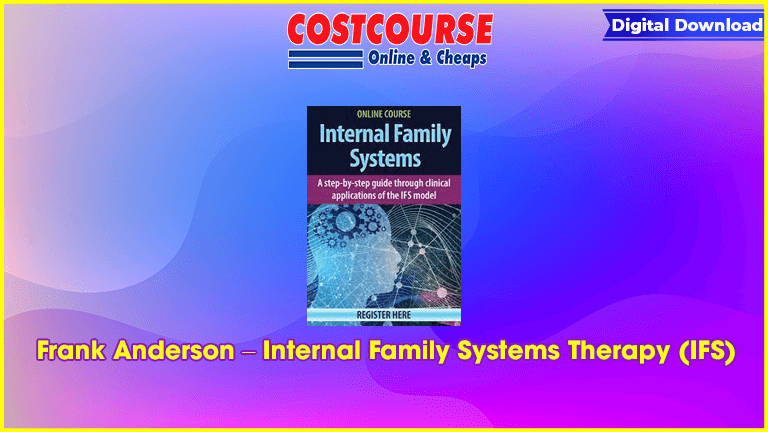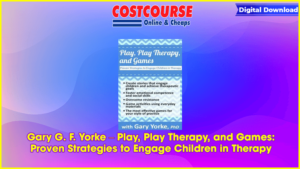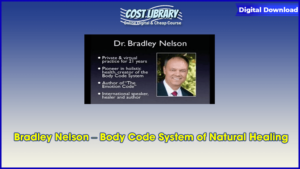Description
Heal traumatic wounds at the cellular level
Use meditative practices to have clients see their symptomology in a different way
Frank Anderson – Internal Family Systems Therapy (IFS)
A non-pathological and accelerated approach to emotional well-being
Everyone – no matter how sick – has healing inner resources
Turn pathology and symptoms into inner resources and self-leadership
We all know what it is to feel conflicting emotions – “a part of me wants to …. and then there’s a part of me that doesn’t….†as we grapple with our internal self, desires, and behaviors.
Think about the family of emotions from Pixar’s movie Inside Out – how family of emotions, Joy, Sadness, Fear, Disgust and Anger all interacted inside Riley Anderson’s mind to form her reactions and memories.
Now you are thinking along the lines of IFS – Internal Family Systems Therapy.
Most modes of psychotherapy believe to have “parts†is pathological. NOT in IFS. In IFS the idea of multiplicity of the mind is normal. Every part has a good intention, and every part has value. All clients have the ability to heal themselves if they listen to their parts. IFS is a very powerful tool for clinicians. Once you see it in action, you’ll be hooked! And you’ll want to immediately incorporate it into your practice.
In developing IFS 30 years ago, creator Richard Schwartz, Ph.D., realized that clients were describing experiences with various parts, many extreme, within themselves.
When these parts felt safe and had their concerns addressed, they were less disruptive. In developing IFS, he recognized that, as in systemic family theory, parts take on characteristic roles that help define the inner world of the client.
Today, IFS has established a legacy of effectiveness in successfully treating many mental health issues and is being heralded as the treatment that all clinicians should know in order to treat clients effectively (van der Kolk 2015).
Join IFS and trauma expert Frank Anderson, MD, colleague of Dr. Bessel van der Kolk and Dr. Richard Schwartz, in this transformational training day and learn of all that IFS therapy can do for you and your clients!
Like Dr. Anderson, after integrating IFS into your work, you will transform your practice. Clients will leave your office feeling healed, with skills to use outside the therapy room to help them master their emotions.
This special day’s training will include experiential exercise, meditation and video demonstration. You will leave transformed!
OUTLINE
Internal Family Systems (IFS): Permanently Heal Your Clients Trauma
Origins of IFS – the work of Richard Schwartz, PhD
A non-pathologizing, accelerated approach rooted in neuroscience
Apply inner resources and self-compassion for healing
How to heal implicit memory wounds at the cellular level
Harness neuroscience for techniques that cure traumatic wounds
The IFS Technique
Step 1: Identifying the Diagnoses & Symptoms
Assess the diagnoses: PTSD, anxiety, depression, substance abuse and eating disorders
Apply Meditation practices
Finding the symptom
Focusing on its fear
Separating the person (self) from the symptom
Becoming curious about it
Find the real story behind the symptom
Step 2: Gain Access to Internal Strengths & Resources for Healing
Moving from defensiveness to curiosity
Access compassion to open the pathways toward healing
Foster “internal attachment†work
The “Self†of the therapist-countertransference redefined
Step 3: Permanent Healing of the Traumatic Wound
Three phases to healing the wound:
Witness the pain
Remove the wounded part out of the past
Let go of the feelings, thoughts and beliefs
Memory reconsolidation & neuroscience
Integrate IFS into Your Treatment Approach
EMDR, DBT, Sensorimotor and other methods
Transformation vs adaptation or rehabilitation
Going beyond the cognitive
Integrate IFS with your current clinical approach
Satisfaction Guarantee
Your satisfaction is our goal and our guarantee. Concerns should be addressed to PESI, Inc., PO Box 1000, Eau Claire, WI 54702-1000 or call 1-800-844-8260.
ADA Needs
PESI would be happy to accommodate your ADA needs; please call our Customer Service Department for more information at 800-844-8260.
Handouts
Manual – Internal Family Systems Therapy (IFS) (0.99 MB)
46 Pages
Available after Purchase
Outline
Internal Family Systems (IFS)
Origins of IFS – the work of Richard Schwartz, PhD
A non-pathologizing, accelerated approach rooted in neuroscience
Apply inner resources and self-compassion for healing
How to heal implicit memory wounds
Harness neuroscience for techniques that cure traumatic wounds
Study limitations: small sample size, no control group
Clinical considerations for clients experiencing abuse
The IFS Technique
Step 1: Identifying the Diagnoses & Symptoms
Assess the diagnoses: PTSD, anxiety, depression, substance abuse and eating disorders
Apply meditation practices
Finding the symptom
Focusing on its fear
Separating the person (self) from the symptom
Becoming curious about it
Find the real story behind the symptom
Step 2: Gain Access to Internal Strengths & Resources for Healing
Moving from defensiveness to curiosity
Access compassion to open the pathways toward healing
Foster “internal attachment†work
The “Self†of the therapist-countertransference redefined
Step 3: Heal the Traumatic Wound
Three phases to healing the wound:
Witness the pain
Remove the wounded part out of the past
Go of the feelings, thoughts and beliefs
Memory reconsolidation & neuroscience
Integrate IFS into Your Treatment Approach
EMDR, DBT, Sensorimotor and other methods
Transformation vs adaptation or rehabilitation
Going beyond the cognitive
Integrate IFS with your current clinical approach
Faculty
Frank Anderson, MD Related seminars and products: 18
Frank Anderson, MD, completed his residency and was a clinical instructor in psychiatry at Harvard Medical School. He is both a psychiatrist and psychotherapist and specializes in the treatment of trauma and dissociation. He is passionate about teaching brain-based psychotherapy and integrating current neuroscience knowledge with the IFS model of therapy.
Dr. Anderson is a lead trainer at the IFS Institute with Richard Schwartz and maintains a long affiliation with, and trains for, Bessel van der Kolk’s Trauma Center. He serves as an advisor to the International Association of Trauma Professionals (IATP) and was the former chair and director of the Foundation for Self-Leadership.
Dr. Anderson has lectured extensively on the Neurobiology of PTSD and Dissociation and wrote the chapter “Who’s Taking What†Connecting Neuroscience, Psychopharmacology and Internal Family Systems for Trauma in Internal Family Systems Therapy – New Dimensions. He co-authored a chapter on “What IFS Brings to Trauma Treatment in Innovations and Elaborations in Internal Family Systems Therapy†and recently co-authored Internal Family Systems Skills Training Manual.
Dr. Anderson maintains a private practice in Concord, MA.
Speaker Disclosures:
Financial: Frank Anderson maintains a private practice. He receives a consulting fee from the Center for Self Leadership. Dr. Anderson receives a speaking honorarium from PESI, Inc.
Non-financial: Frank Anderson is the President of the Foundation for Self Leadership.








